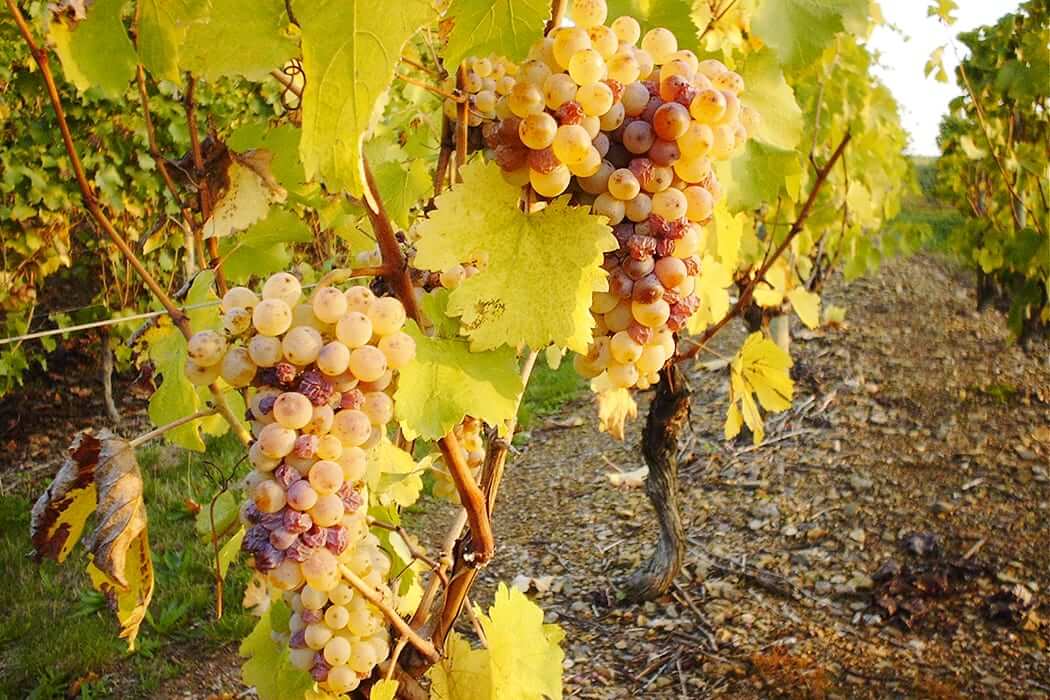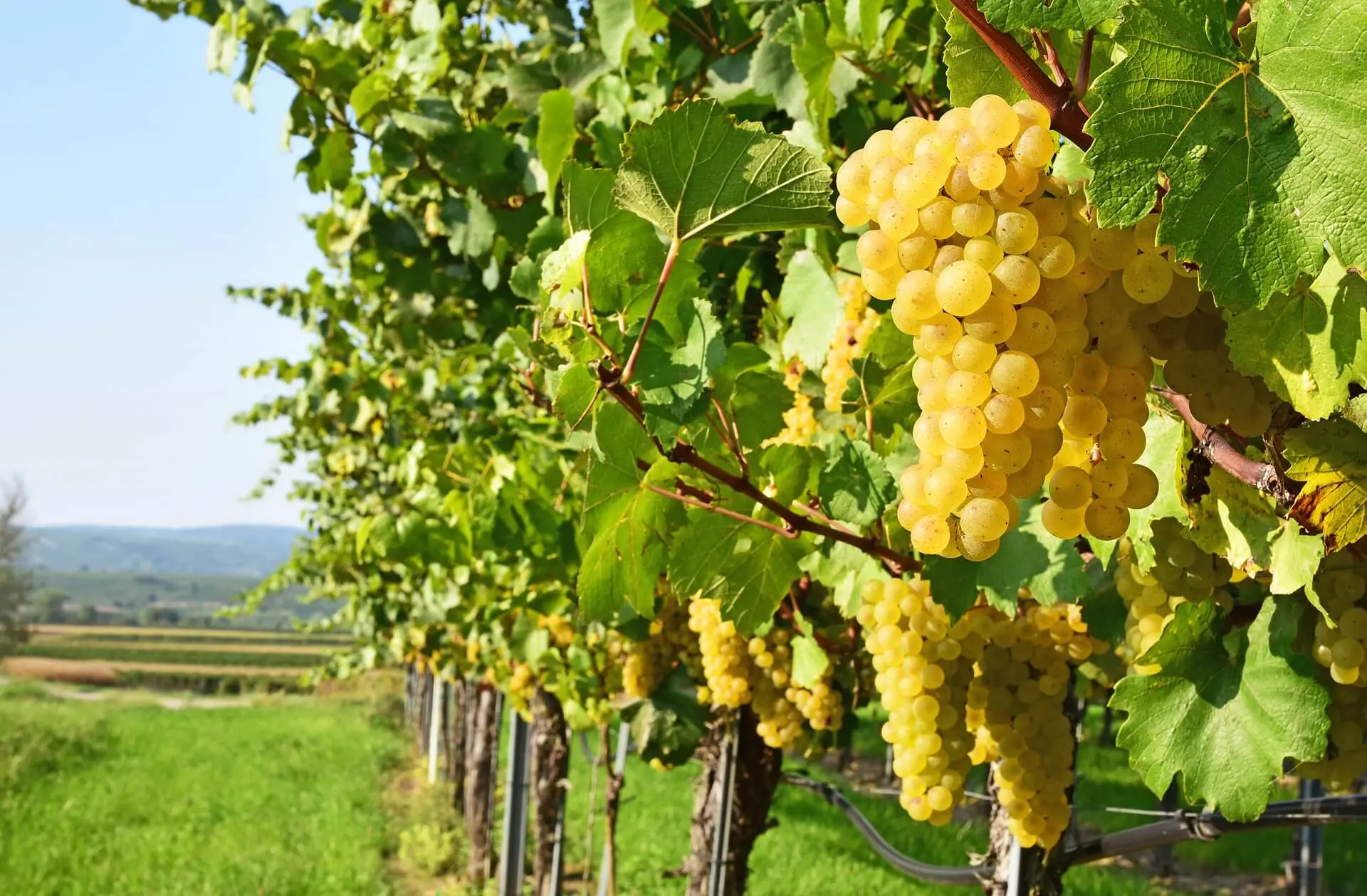Wine is a fascinating product of mother nature, fermented grape juice that can capture a range of scents, flavors, and textures in a glass. For thousands of years, wine has been made all over the world, each with its own unique expression of terroir and winemaking style.
Today, amidst a plethora of modern winemaking methods, there is a movement that is taking a step back and bringing winemaking back to its most fundamental form: natural wines.
Why natural wine is important
Wine lovers, both new and experienced, are always looking for new experiences and ways to deepen their wine knowledge. Discovering natural wines can be an enriching addition to this journey.
Natural wine, also known as ‘raw wine’ or ‘vinnaturel’, offers a different lens through which to look at wine, focusing on minimal intervention, both in the vineyard and in the cellar, and a strong focus on sustainability. These wines, which are often characterized by their vibrant and sometimes unusual flavor profiles, can provide a captivating challenge to the palate and challenge perceptions of what wine can and should be.
Whether you’re interested in sustainability, looking for unique taste experiences, or just curious about the different styles of wine out there, natural wines have a lot to offer. This guide aims to shine a light on what natural wines are, what makes them special, and provide some suggestions for natural wines you could try.
What are natural wines?
The world of wine can sometimes be overwhelming with its diverse styles, grape varieties and winemaking techniques. One of the terms you may have come across on your wine journey is “natural wine”. But what does this mean exactly?
Definition of natural wine
Natural wine is a term used to describe wines that are made with minimal human intervention, both in the vineyard and in the cellar. The idea is to create a wine that is as pure an expression as possible of its terroir – the unique combination of climate, soil and grape variety from which it emerges.
Unlike conventional wines, no synthetic herbicides, pesticides or fertilizers are used in the vineyard in the production of natural wines. In the cellar, there is minimal intervention from the winemaker: no added yeasts for fermentation, no temperature control, and usually little or no added sulfites (a common preservative in wine). Additionally, natural wine is typically not filtered or clarified, which can result in a cloudy appearance and sediment in the glass – both of which are completely normal and safe to drink.
The philosophy behind natural wine
Making natural wine is a philosophy and an attitude that emphasizes respect for nature and the environment. The idea is to let nature take its course and let the wine shape itself, rather than trying to control the process or steer the wine in a certain direction.
An important part of the philosophy of natural wine is sustainability. This goes beyond just organic or biodynamic farming practices (although many natural wine makers practice these as well). It is also about caring for soil health, biodiversity conservation, water management and energy use.
In conclusion, natural wines are the result of a dedicated effort to make wine in a way that is both environmentally friendly and highlights the unique characteristics of the terroir. But how does this translate into taste?
And how can we start exploring this unique category of wines? Let’s move on to take a look at some of the most well-known types of natural wines you could try.
What makes natural wines special?
The world of natural wines is as diverse and complex as that of their conventional counterparts. Here’s an explanation of what makes these wines truly special.
Unique qualities and characteristics
What distinguishes natural wines is their unique expression of terroir. Because there is less intervention during the winemaking process, the characteristics of the grape and the influence of the environment in which it grows are more pronounced. This results in wines with unique, often unexpected flavors and aromas. Natural wines also tend to be more lively.
This is because they are often not filtered or minimally filtered, so they retain their natural yeast cells. These cells can continue to ferment in the bottle, resulting in a vibrant, slightly sparkling wine. The lack of filtration can also mean that natural wines are cloudy compared to conventional wines. This is an aesthetic difference that may put some people off at first, but it doesn’t affect the taste of the wine.
Challenges and benefits
While natural wine can be an exciting new world to explore, there are also challenges that come with it. Making natural wine can be difficult and risky, as it requires the winemaker to relinquish control and rely on natural processes. This can lead to greater variability between vintages and even between individual bottles.
The lack of added sulfites can also mean that natural wines are less stable and can be stored for a shorter period of time than conventional wines. They may also be more susceptible to errors such as oxidation or the growth of unwanted bacteria. However, for many, the benefits of natural wines outweigh these challenges.
Natural wines can offer greater complexity and depth of flavor than many conventional wines. Additionally, due to the lack of chemical additives, they may also appeal to those looking for a more ‘natural’ or ‘pure’ wine experience. Most importantly, natural wines, like all wines, are meant to be enjoyed.
Whether you’re an experienced wine connoisseur or a newcomer to the wine world, there’s a natural wine to suit your taste profile.
Main regions and producers of natural wine
Natural wines are produced worldwide, but there are some regions and producers who have distinguished themselves through their commitment to natural viticulture methods and the quality of their wines.
France: the pioneer of natural wines
France, the cradle of the natural wine movement, produces some of the most prized natural wines in the world.
The Loire Valley, Beaujolais, Rhône and Languedoc are just some of the regions known for their natural wines.
In Beaujolais, for example, Domaine Marcel Lapierre is a name that has become synonymous with high-quality natural wines.
Lapierre, one of the founders of the natural wine movement, is known for his expressive, fruity wines made from the Gamay grape.
Italy: diversity and innovation
Italy, a country that has long been known for its diversity of wine styles and varieties, also has a thriving natural wine culture. From Piedmont in the north to Sicily in the south, Italian producers have embraced natural wine methods to create unique and unforgettable wines.
One producer to be sure to check out is Elisabetta Foradori in Trentino, whose work with the teroldego grape has earned her recognition as one of the leading producers of natural wines in Italy.
Spain: old vines, new techniques
Spain has given the world some of the oldest vines and winemaking traditions, as well as some of the most innovative natural wines. Regions such as Catalonia, the Basque Country, and the Canary Islands are just some of the places where you can find great Spanish natural wines.
For example, Envínate, a partnership of four friends, has received praise for their natural wines from several Spanish wine regions, including the Canary Islands and Ribeira Sacra.
Natural Wine Recommendations to Try
Whether you’re new to the world of natural wines or an experienced enthusiast, exploring these wines can be an engaging and rewarding experience.
Here are some recommendations that cover a wide range of tastes and price ranges.
Domaine Marcel Lapierre, Morgon, Beaujolais, France
This wine, made from gamay grapes, is a wonderful example of a Beaujolais natural wine. It has vibrant red fruit aromas, complemented by earthy and spicy notes.
It’s a medium-bodied wine, ideal for food pairings with chicken, light meats, or even fish. The price range is average, making it an accessible choice for someone who is just starting out with natural wines.
Elisabetta Foradori, Teroldego Rotaliano, Trentino, Italy
Elisabetta Foradori is a master at working with the teroldego grape, and this wine is a wonderful testament to her talent. It has deep, dark fruit aromas, combined with mineral and spicy notes. It goes well with grilled meats or hearty pasta dishes. Although this wine is on the pricier side, the complexity and quality is worth the price.
Envínate, ‘Albahra’, Almansa, Spain
This wine, made from the garnacha tintorera grape, is both elegant and expressive. It offers aromas of dark berries and flowers, combined with a fresh minerality. It’s a versatile wine that pairs well with a wide range of dishes, from tapas to grilled meats. The price is reasonable, making it a great choice for beginners and experienced natural wine lovers alike.
The natural path in the world of wine
Natural wines offer a unique and authentic wine experience, where you will have the chance to taste the true essence of the grape and the terroir. While deviating from conventional winemaking methods, they celebrate the age-old traditions of winemaking and mark a return to the source.
If you’re new to natural wines, we hope this guide has inspired you to explore this fascinating world. And if you’re already an enthusiast, we hope this information supports your further journey of discovery.
Remember that, as with all wines, the most important thing with natural wines is to enjoy the process of discovering, tasting and sharing.



